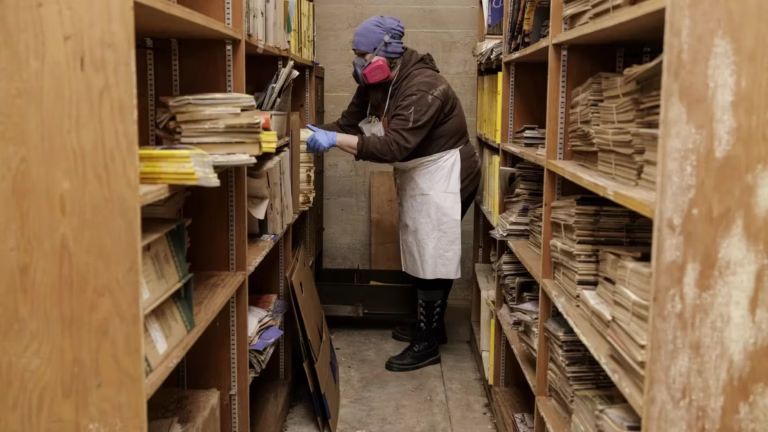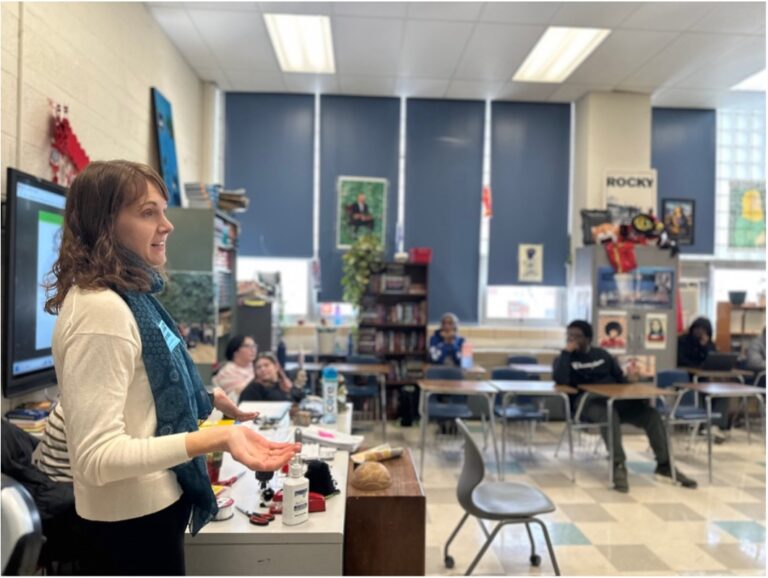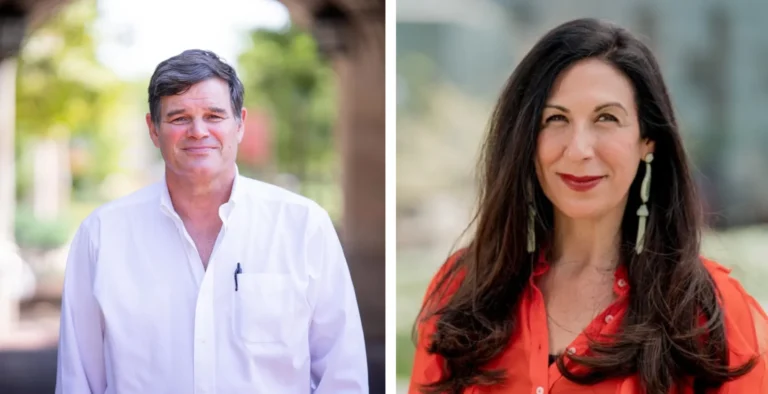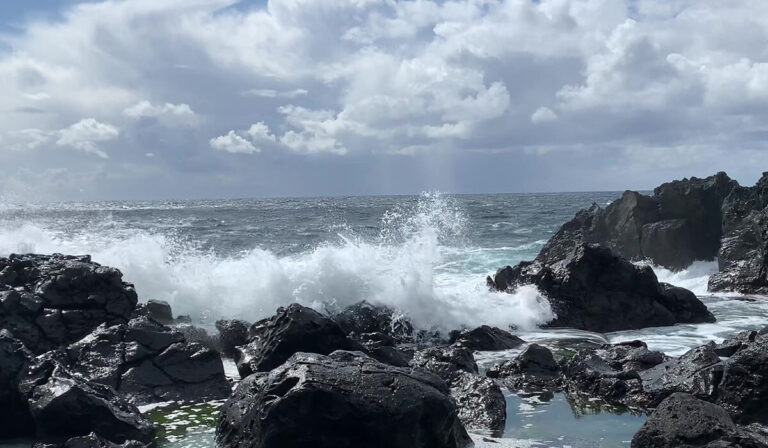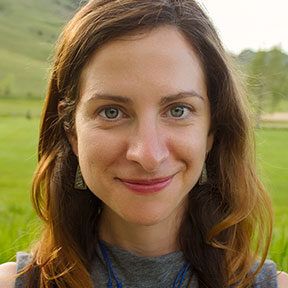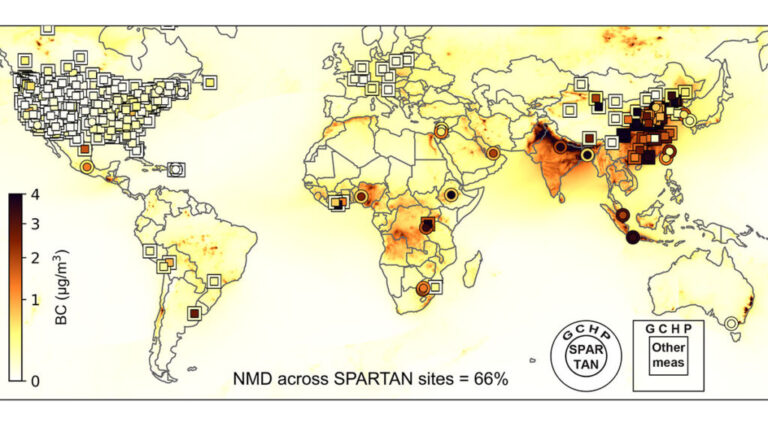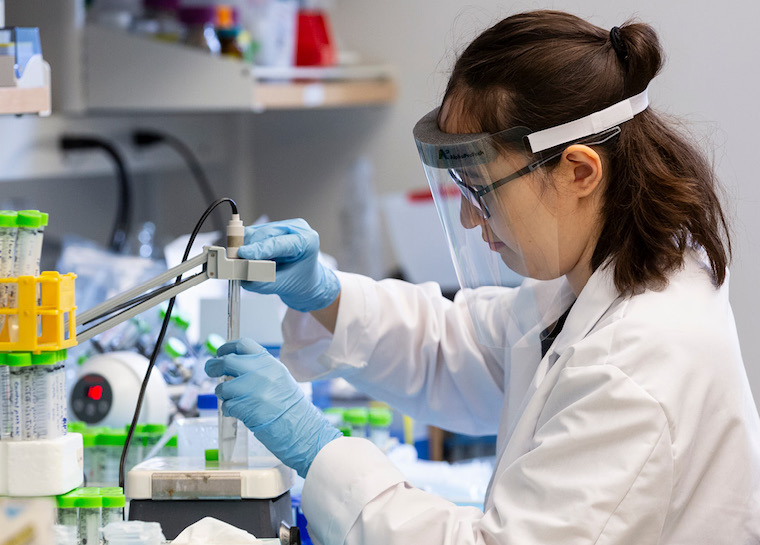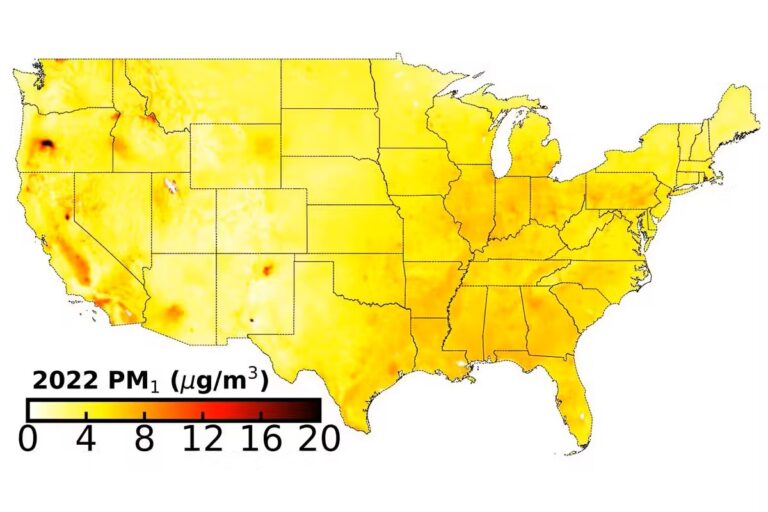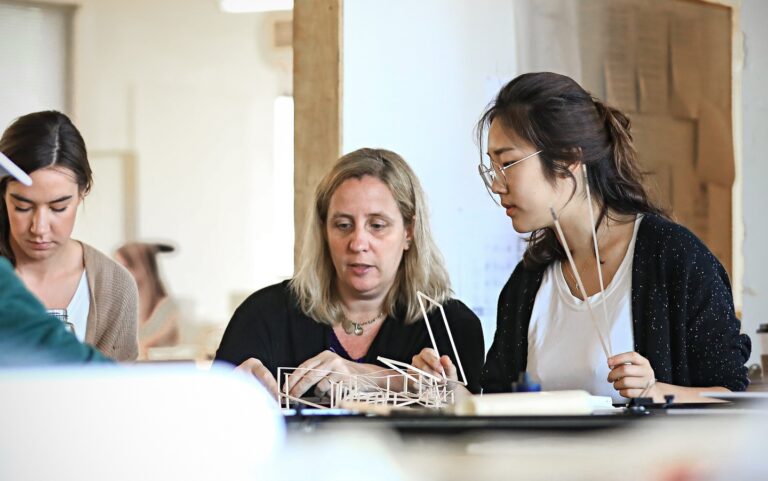At the intersection of data, climate, and human health
Bo Li, the Stanley A. Sawyer Professor of Statistics and Data Science, describes the potential of data science to address interwoven challenges at the nexus of environmental change and human health.
The secrets of bunker 46
Inside a World War II-era bunker at Tyson Research Center, preserved birds, handwritten logs and mold-covered artifacts tell a story of science, stewardship and changing times.
Climate Across the Curriculum
WashU partners with Gateway STEM High School to connect students to opportunities in the sciences
How the Program in Public Health & Society is preparing tomorrow’s leaders
The year was 2022, and we were still living in the shadow of COVID-19. Like many of our colleagues, we were cautiously gathering for the first time (masked) after virtual classrooms, remote work, and daily headlines that had suddenly made “public health” a household phrase. For many, the term felt new. But for us, it had long been central to our work.
When waves meet the shore, sea spray levels up
Researchers look closely at sea spray aerosols from shoreline wave breaking, environmental implications
Konecky wins 2025 NSF CAREER Award
Bronwen Konecky has won a prestigious NSF CAREER Award to study rainfall changes in the Central America and northern South America region
Black carbon emissions underestimated in ‘global south’
Black carbon, the sooty byproduct of incomplete combustion of fossil fuels, has emerged as a major contributor to climate change and human health impacts.
Environmental futures
SHARE
Across all Washington University in St. Louis campuses, scores of researchers share a drive to understand the natural forces that shape our climate, health, culture and physical world.
Tiny and toxic: Researchers track smaller air pollution particles across U.S. skies
To help understand air pollution health effects, researchers at Washington University in St. Louis quantify how the amount of submicron particles in the air has changed over the past 25 years
Freixas’ research project Segregation by Design to receive Provost Impact Award
Associate Professor Catalina Freixas has received a Provost Impact Award through WashU’s Confluence Collaborative for her research project, Segregation by Design.

